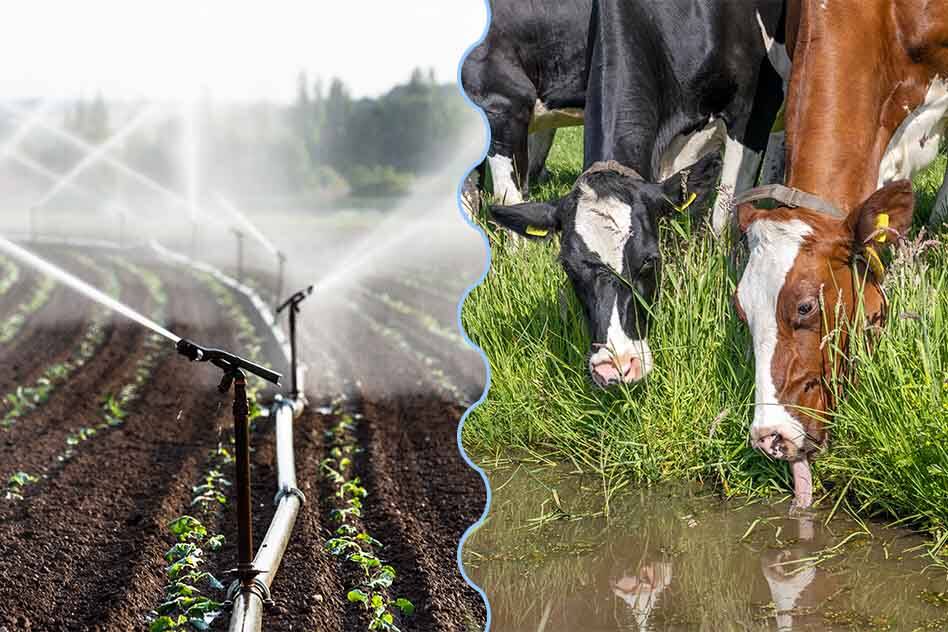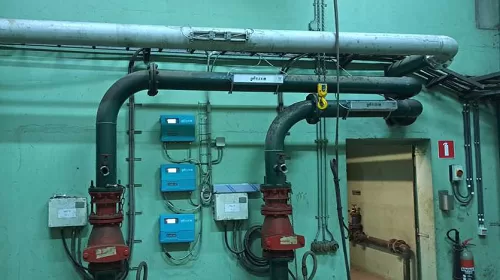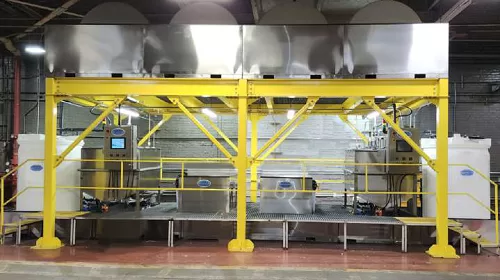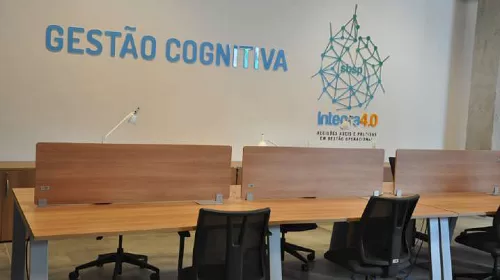By Prof. Dinesh Chandra Rai, Vice- Chancellor, BRA Bihar University, Muzaffarpur, Bihar & Former Founding Head, Department of Dairy Science and Food Technology, Institute of Agricultural Science, Banaras Hindu University, Varanasi, UP
On March 22nd every year, World Water Day is observed as a way to raise awareness about the importance of water and advocate for the sustainable management of water resources. This year, the theme for World Water Day is “Valuing Water” and it highlights the essential role that water plays in our daily lives and the need to protect and conserve this valuable resource. At the same time the water crisis surfaced in Bangalore serves as a sobering reminder of the importance of sustainable water management practices.
Water is essential for all living beings and is crucial for human health, agriculture, industry, and the environment. However, many people around the world still do not have access to clean and safe drinking water. According to the United Nations, 2.2 billion people worldwide do not have access to safely managed drinking water services, and 4.2 billion people lack safely managed sanitation services.
The COVID-19 pandemic has also highlighted the importance of water in the fight against infectious diseases. Proper handwashing with clean water and soap is one of the most effective ways to prevent the spread of the virus. However, millions of people around the world still do not have access to clean water and sanitation facilities, making it difficult for them to practice good hygiene and protect themselves from diseases.
Climate change is also exacerbating water scarcity issues around the world, with more frequent droughts, floods, and extreme weather events affecting water availability and quality. It is crucial for countries to work together to address these challenges and ensure that water resources are managed sustainably for the benefit of current and future generations.
As individuals, we can also do our part to conserve water by reducing our water consumption, fixing leaks, and using water-saving technologies in our homes. By valuing water and understanding its importance, we can work towards a more sustainable and water-secure future for all.
The water conditions in Bihar are quite poor, with many areas facing issues such as contamination, scarcity, and lack of access to clean drinking water. The groundwater in the state is often contaminated with high levels of arsenic and fluoride, leading to serious health problems for those who consume it. In addition, the state faces seasonal waterlogging during the monsoon season, causing further issues with water quality and access.
The government and various organizations have been working to improve water conditions in Bihar through initiatives such as water purification systems, borewell construction, and awareness campaigns. However, more efforts are needed to ensure that all residents have access to clean and safe drinking water.
The Jal Jeevan Hariyali Scheme is a flagship programme launched by the Government of Bihar to increase green cover along the banks of the rivers in the state. The objective of the scheme is to promote afforestation, tree plantation, and the conservation of natural resources to tackle issues like climate change, soil erosion, and water scarcity.
Key features of the scheme include:
- Target areas: The scheme focuses on the banks of rivers, canals, and other water bodies in the state to improve water conservation and increase biodiversity.
- Plantation drive: Under the scheme, extensive tree plantation drives are carried out along the riverbanks to increase green cover and reduce soil erosion.
- Soil conservation: The scheme also includes measures to prevent soil erosion and improve soil quality through the use of natural resources like organic fertilizers.
- Water conservation: Water conservation measures such as building check dams, farm ponds, and rainwater harvesting structures are implemented to improve water availability in the region.
- Community involvement: The scheme encourages community participation in the implementation and monitoring of the project to ensure sustainability and long-term success.
Overall, the Jal Jeevan Hariyali Scheme in Bihar aims to enhance the ecological balance, improve the environment, and create a sustainable ecosystem for future generations.
BRA Bihar University is also keen to contribute it’s part in addressing water issue. Apart from regular awareness sessions in collaboration with NSS and other bodies various measures are being taken.
- Establishing research programs to develop innovative solutions for water scarcity, such as new water treatment technologies and efficient water management strategies.
- Implementing water conservation programs on campus, such as installing water-saving fixtures and promoting water conservation practices among students, faculty, and staff.
- Partnering with local water utilities and municipalities to develop sustainable water management plans for the campus and surrounding community.
- Offering educational programs and workshops on water conservation, sustainability, and the importance of water stewardship.
- Investing in infrastructure improvements to reduce water waste and improve water efficiency, such as upgrading irrigation systems and implementing rainwater harvesting systems.
- Supporting student-led initiatives and projects focused on addressing the water crisis, such as water quality testing programs and community outreach campaigns.
- Collaborating with industry partners and other stakeholders to identify and implement best practices for water conservation and management.
- Engaging in advocacy efforts to raise awareness about the global water crisis and the need for sustainable water management practices.
- Incorporating water sustainability into the university’s curriculum and research agenda, to ensure that future generations of students are equipped to address the water crisis.
- Establishing partnerships with other universities, research institutions, and organizations to share knowledge and resources for addressing the water crisis on a larger scale.
Overall, the Bangalore water crisis underscores the urgent need for proactive measures to address water scarcity and ensure water security for current and future generations. By learning from past mistakes and taking decisive action, we can work towards building a more resilient and sustainable water supply system.
This World Water Day, let us reflect on the critical role that water plays in our lives and commit to taking action to protect and conserve this precious resource. Together, we can ensure that everyone has acceto conserve and protect our precious water resources for future generations. Let’s commit to using water responsibly and ensuring that everyone has access to clean and safe drinking water. Together, we can make a difference and help create a more sustainable world for all. Let’s pledge to take action and make a positive impact on world water day and every day.ss to clean and safe water and build a more sustainable future for our planet.





